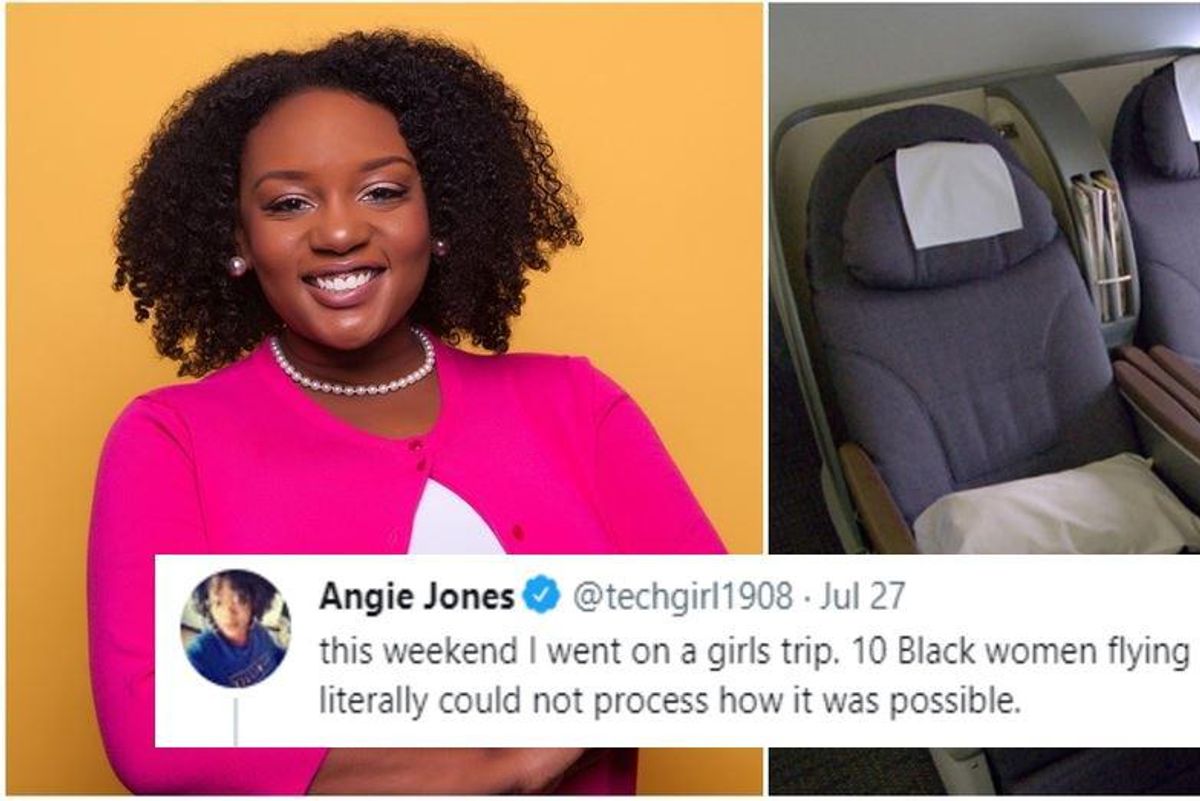10 Black women sat in first class on an airplane and it revealed a lot about race in America
"This weekend I went on a girls trip. 10 Black women flying first class. People literally could not process how it was possible."

Software developer Angie Jones' recent girls trip revealed that America still has a long way to go when it comes to race. To most, that's not surprising. But what's unique is how the specific experience Jones and her friends went through revealed the pervasive way systemic racism still runs through our culture.
Jones is the Senior Director of Developer Relations at Applitools, holds 26 patented inventions in the United States of America and Japan, and is an IBM Master Inventor.
On July 27, she tweeted about a flight she took with nine other Black women and they all sat in first class. "People literally could not process how it was possible," she wrote. "Staff tried to send us to regular lines. Passengers made snide remarks. One guy even yelled 'are they a higher class of people than I am?!'"
Jones and her friends were the targets of racism that ranged from the seemingly unconscious — people who assumed that Black people don't sit in first class — to the blatant — those who were seriously bothered that Black people were being treated as having a higher status.
It's interesting that she didn't mention anyone saying "good for you" for succeeding in a world that often holds people of color back. Instead, she was greeted with incredulity and jealous rage.
There are a lot of white people who can't stand the idea of a Black person being elevated above them. It's disturbing that in there are still some who will admit it publicly.
Jones' tweets inspired a lot of people to share their stories about the racism they've experienced while flying first class.
Jones' tweets also angered some people to the point that they denied her story. To which she responded, "To those saying I'm lying, you're a huge part of the problem," she wrote. "You tell yourself a notable person is lying (for what reason, I cannot figure out) before you believe there are actual racists in...America."
One Twitter user came up with the perfect retort to the person who asked, "Are they a higher class of people than I am?!"
- Four concrete things that everyone can do to dismantle racism ... ›
- Yes, wealthy black Americans experience racism and get to protest ... ›
- Kindergarten teacher gently explaining racism to her students is a ... ›
- A study found the best times to purchase plane tickets - Upworthy ›
- Oprah's controversial 1992 secret racism experiment on her audience is still important today - Upworthy ›
- Third-grade teacher's historic 1969 racism experiment on her students - Upworthy ›
- 10 Black women bought first-class airplane tickets, and it revealed a lot about race in the U.S. - Upworthy ›
- A Black woman and white man share a refreshingly wholesome—and healing—exchange - Upworthy ›
- After a 7’1” man was uncomfortable on a plane, a "very short" woman came to his rescue - Upworthy ›

